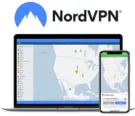Should you use a VPN while gaming?
We take a look at the pros and cons to figure out whether using a VPN while gaming is the right move

Here at Tom’s Guide our expert editors are committed to bringing you the best news, reviews and guides to help you stay informed and ahead of the curve!
You are now subscribed
Your newsletter sign-up was successful
Want to add more newsletters?

Daily (Mon-Sun)
Tom's Guide Daily
Sign up to get the latest updates on all of your favorite content! From cutting-edge tech news and the hottest streaming buzz to unbeatable deals on the best products and in-depth reviews, we’ve got you covered.

Weekly on Thursday
Tom's AI Guide
Be AI savvy with your weekly newsletter summing up all the biggest AI news you need to know. Plus, analysis from our AI editor and tips on how to use the latest AI tools!

Weekly on Friday
Tom's iGuide
Unlock the vast world of Apple news straight to your inbox. With coverage on everything from exciting product launches to essential software updates, this is your go-to source for the latest updates on all the best Apple content.

Weekly on Monday
Tom's Streaming Guide
Our weekly newsletter is expertly crafted to immerse you in the world of streaming. Stay updated on the latest releases and our top recommendations across your favorite streaming platforms.
Join the club
Get full access to premium articles, exclusive features and a growing list of member rewards.
A virtual private network (VPN) is a cyber security tool that hides your traffic and data from third parties, including government agencies, advertisers, and hackers. It works by allowing you to connect to servers in different parts of the world, which will spoof your IP address and protect your data. Not only does this have plenty of applications for everyday use, a VPN can also be helpful when gaming as it can help reduce ping, stop your ISP from throttling your connection speeds and even allow you to access content from other countries.
However, while there are plenty of pros to using a VPN for gaming, there are some downsides like potentially slower speeds and even risking being banned from gaming servers for using one. Read on to find out whether or not using a VPN for gaming is right for you.
Pros of gaming with a VPN
There are a surprising number of benefits to using a VPN for gaming, from protecting you from cyber attacks to avoiding your speeds being slowed by lag or throttled by your ISP.
Here, we explain in more detail how this works:
Lower lag and ping rates (latency)
One of the main features of a VPN is that it allows you to spoof your location by connecting to servers in that country. This comes with many benefits, including the potential to reduce your ping (latency). Ping is a measure of how quickly your device can receive information from a server.
So, connecting to a different server could speed things up by increasing the responsiveness of your overall gaming experience. It does this by directing your gaming traffic through the VPN’s server, thereby establishing a more stable connection.
This can make a significant difference if you play competitive games, such as League of Legends, Overwatch, or Valorant, as having a lower lag and reduced ping could give you an all-important advantage by enabling you to respond to what’s happening in the game more quickly than your opponents. Even a few milliseconds could make the difference between victory and defeat.
However, it’s important to bear in mind that there’s no guarantee that getting a VPN for gaming could reduce your ping. Depending on your location and the games you like to play, most gaming platforms do a decent job of routing your traffic to whichever server will give you the fastest ping, particularly if you’re in the US, Europe, or East Asia. It’s also worth checking to see if your favorite online games will let you choose your own servers before you start playing.
All in all, gamers who benefit most from using a VPN to reduce lag are those who play competitive games and are already struggling with a high ping when gaming. We would define high ping as around 100 milliseconds or more. This is more likely if you live outside the US, Europe, or East Asia, as you’re probably too far away from the game’s servers.
A VPN could help you get around this issue by enabling you to route your traffic directly to a server in the same region as the game you want to play. This would reduce the amount of time it takes for your device to receive information from the game.
By the same token, if you connected to a server in a location that’s further away from your game’s data centers, you could risk making your ping worse. So make sure you research where your game’s data center is before you start routing your traffic via one of your VPN’s servers.
If you don’t tend to play competitive games, you might not feel the need to switch servers unless you’re already dealing with high ping.
Mitigate DDoS attacks
Online gamers are often the targets of DDoS (distributed denial-of-service) attacks, often by other competitive gamers who might want to slow down their opponents. So, if you’re concerned about being the target of DDoS attacks, using a VPN to protect yourself against this threat is a good idea.
By connecting to your VPN, you’re essentially going invisible, which makes it very difficult for a DDoS attacker to successfully target you. It does this by changing your IP address whenever you connect to a VPN server and routing all your traffic through that.
This makes it extremely difficult for an attacker to overwhelm your connection with requests. It also means they’re very unlikely to be able to find out any of your personal information, such as your email address, real name, or home address, as your true IP address is being masked by your VPN. So this minimizes the risk of doxxing, so no one will be able to harass you at your house.
If you’re worried that this might have a negative impact on your speed, there are plenty of VPNs on the market that offer DDoS mitigation, which should prevent your game from slowing down.
Stop throttling by your ISP
Downloading games and playing them online can use a lot of bandwidth. And if you regularly do this, particularly at peak times, you might find that your internet service provider (ISP) starts throttling your connection. This will mean you’ll get slow and sluggish speeds when you’re gaming. Which will become very frustrating, particularly if you’re trying to download a game that takes up 100GB+ or you’re trying to play competitive games.
It will likely make it take a lot longer to download a game and could worsen the quality of your gaming experience because your internet connection won’t be able to upload and download data quickly enough.
Luckily, using a VPN can protect you from having your speeds throttled by your ISP. In much the same way as it hides your IP address from potential DDoS attacks, it will also prevent your ISP from seeing your real IP.
And if your ISP can’t see that, it will have no idea what you’re doing online, so it won’t be able to use activity-based throttling. Therefore, you can use up as much bandwidth as you like without your ISP being any the wiser.
Access to games/releases in other countries
One of the biggest benefits of a VPN is that you can use it to unblock region-restricted content from other parts of the world. And if you’re an avid gamer, this will give you no end of new games to play. Whether you want to play Japanese-made RPGs or Korean MMOs, a VPN can enable you to access games from anywhere you want in just a few clicks.
This is because plenty of online games have sophisticated geo-blocking technology that will prevent servers in specific locations from being able to access the content. But with a VPN, you can connect to a server in a region where the game isn’t restricted, which will spoof your real location and allow you to play games that aren’t available where you are.
Similarly, if you want to play games with someone in another country who can’t access the same servers as you, a VPN is a quick and easy solution that will see you battling with or against your friends in a matter of seconds.
Again, all you need to do is connect to a server in the right location and you can start playing the same game at the same time. It might even allow for a more stable connection, which will prevent lag and allow you to have a fast, smooth gaming experience.
However, it’s important to note that a lot of online gaming and streaming platforms employ anti-VPN measures that can detect and block some VPN traffic. This means that, if you are caught, you risk violating their terms of service and can face consequences for doing so.
Cons of gaming with a VPN
Although there are plenty of important benefits to using a VPN for gaming, there are a few drawbacks to consider before you sign up.
Here, we’ll talk you through them in detail to help you make the right choice for you.
You may be banned for violating terms of service
As we mentioned earlier, a lot of gaming companies use VPN tracking software to identify and block VPN traffic. So, depending on the provider you’ve chosen, it’s possible that you may be blocked from accessing the games you want.
You should be aware that many of these gaming companies don’t just block VPN traffic, they actually have it written in the terms of service you must agree to before you’re able to access the games you want. So, if your traffic is identified as being routed through a VPN server, you could well be violating that platform’s terms of service, which could result in you getting banned from the site.
Here’s an example from Stream’s subscriber agreement: "You agree that you will not use IP proxying or other methods to disguise the place of your residence, whether to circumvent geographical restrictions on game content, to order or purchase at pricing not applicable to your geography, or for any other purpose. If you do this, Valve may terminate your access to your Account."
While it is possible to use a VPN that’s capable of going undetected by anti-VPN software, you should think carefully before using one to unblock region-restricted games.
Potentially lower connection speeds
Although you can use a VPN to reduce lag, you may also find that routing your connection via a VPN server may leave you with faster speeds than you’re used to. In fact, unless you’re already struggling with lag or your ISP is throttling your speeds, you might well notice a negative impact on your connection speeds while you’re on one of your VPN’s servers.
While raw connection speed doesn’t usually impact gaming as much as ping, a slow and sluggish connection will start to detract from your gaming experience. It’ll take a lot longer to download games and it might have a knock-on effect on your overall gaming speeds. Even when using the fastest VPNs on the market, you're likely to notice a slight dip in speeds. To learn more, take a look at our speed tests on the most popular VPNs.
In short, unless your ISP is throttling your speeds, using a VPN is more likely to do harm than good to your speeds. However, if you use a good VPN, such as Surfshark, NordVPN, or ExpressVPN, you won’t notice much of a difference in performance. However, the security benefits, as well as the ability to unblock region-restricted content, might well be a decent trade-off against the slight dip in speeds.
Our gaming VPN recommendations
If you’ve decided that using a VPN while gaming is right for you, the next step is to find the right VPN to use. Luckily, we’ve tested out the best VPNs for gaming to help you choose the perfect provider for you. From fast speeds to accessing geo-blocked games from overseas and strong IP address spoofing, I’ve put all the most popular VPNs on the market to the test and rounded up our top three favorites:
1. The best VPN for gaming: ExpressVPN
In our testing, ExpressVPN came out on top overall as the best VPN for gaming. Its simple one-click connection automatically gives you the fastest and safest connection. And it has impressive security features to keep your sensitive information completely hidden from hackers and opponents.
Although it’s definitely not the cheapest VPN on the market, it comes with a whole host of extras to justify the cost, including a DNS ad blocker, a built-in password manager, and a year of secure storage. On top of this, it also offers 24/7 customer support. If you want to try it out before committing, it has a 30-day money-back guarantee.
2. The best VPN for accessing geo-blocked games: NordVPN
When it comes to unblocking region-restricted content, NordVPN almost always comes out on top. It can access a huge range of geo-blocked gaming platforms and streaming services thanks to its exceptional security features and huge collection of strong servers.
Alongside this, you’ll also get consistently quick speeds that won’t noticeably slow down your gaming experience. And it comes with an extensive security suite with features like malware protection, ad blockers, a built-in password manager, and protection from scams.
For all this, NordVPN is very competitively priced, making it one of the best-value options around, And it comes with a 30-day money-back guarantee, so you can test it out.
3. The best value gaming VPN: Surfshark
Although Surfshark has a very low monthly cost, it comes stuffed full of features that make it an excellent choice for anyone looking to use a VPN for gaming without spending a lot.
For one thing, it’s the fastest VPN we’ve tested, so it won’t slow you down when you’re trying to beat your opponents. It also has a huge range of security features to protect your data. And it comes with unlimited simultaneous connections, which means you can use your subscription on as many devices as you like without having to pay extra. You can make use of Surfshark’s 30-day money-back guarantee before you commit to a subscription.
Gaming VPN FAQs
Does using a VPN stop lag?
A VPN can reduce lag by establishing a more stable connection and directing your traffic through dedicated servers that will allow for a smoother and speedier experience. Of course, there is also a risk that it can slow your connection speeds. However, if you use a VPN with strong, dedicated servers, you’ll still be able to get consistently fast speeds.
Does using a VPN stop ping?
A good VPN can reduce ping if you connect to a secure server. This will allow for a more stable connection that will prevent ping spikes and give you a more consistently fast experience. Just make sure you choose a VPN that’s known for delivering fast speeds, such as NordVPN or Surfshark, as a less reputable provider may lead to slower speeds than you’re used to.
Which is the safest VPN for gaming?
We tested out a huge range of VPNs and found that ExpressVPN was the best and safest option for gaming. It comes with a huge wealth of impressive security features, including robust protection against malware, as well as DNS leak protection, a tracker blocker, and an ad blocker.
Get instant access to breaking news, the hottest reviews, great deals and helpful tips.

Olivia joined Tom's Guide in October 2023 as part of the core Tech Software team, and is currently VPN Commissioning Editor. She regularly uses VPNs to make sure they deliver what they promise, and specializes in testing VPNs with streaming sites.
- Catherine HileyFreelance Writer
 Club Benefits
Club Benefits













